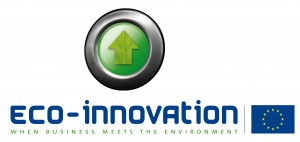 The slides can be viewed on the Eco-innovation webpage.
The slides can be viewed on the Eco-innovation webpage.
Yearly Archives / 2011
Economic Growth, Business & Higher Education
I am just back from a day in London at a posh briefing event which can be summarised as ‘the lunch not much cop, but the talks were surprisingly good and gave me lots to think about’. So I thought it was worth sharing some of this while it was fresh in my mind. David Sweeny (Director of Research, Innovation & Skills, HEFCE) started the day talking about REF and impact amongst other things. One of the things that interested me was the return on investment from business interaction: £4-7 for every £1 spent which is quite good! But impact is seen as a way of adding to the value of this investment further and the return on the RAE/REF which has consistently placed the UK ahead of the game. For example, internationally we produce 5% of all the PhD’s globally, 7.9% of all research publications from just 1% of the World’s population! Staff at BU play an important part in this.
It was the next talk that really made me sit up. It was from a guy at Oxford Brookes (Kevin Maynard) talking about their approach to enterprise or to use his jargon ‘Knowledge Exchange’. He was making the point that what is really crucial is that Knowledge Exchange – enterprise by another name – was not about wealth creation for an institution but about the ‘inflow’ of knowledge to inform it core businesses of research and education. This is an important concept since he argued that it was central to: (1) employability, (2) course development, (3) ensuring research relevance to business/industry/society, and (4) increasing the breadth and capacity of the academic team and its professional development. What he didn’t say, but is crucial here, is that it is central to a good student experience and staff motivation around enterprise. I was really impressed by this since it is about the wider benefits to us as academics in engaging with industry/business rather than about simply generating income. It is worth saying that they are also ahead of the game on that front too, but it is not the driver or what motivates academics to engage and engage they do. One other point which also struck a cord was the idea of using CPD provision as a market tester for degree programmes; a dam sight cheaper to run up a couple of CPD courses than a whole degree and see it fail for lack of recruitment!
Paul Mason (Head of Development, Technology Strategy Board) was up next and talked about the re-vamp of their strategy due out later this month, but the bit I liked here was that he was talking about being ‘challenge led’ not ‘product driven’. You start by finding out what the challenges are and then broker a solution based on the range of products or interventions you have available or can source. This is basically what I have been talking about around BU in the context of knowledge brokering as a way forward for us. It is an important point; instead of working out what products we have to sell – CPD, different flavours of consultancy etc. – we need to first find out what challenges business face and want solving. This fits with the need to be outward rather than inward facing in our approach in developing our new Research & Enterprise Strategy. If we are to live the idea of providing a student experience in which employability is written large then links to business, industry and the professions are vital and we will need to up our game in these areas and being seen to provid real business/industry solutions is one way to do this.
There were several other speakers who talked about the importance of innovation and generating economic growth within future allocations of HEIF funding and the importance of promoting our success in applying and exploiting our research. The importance of engaging with Local Economic Partnerships following the demise of the Regional Development Agency was also a common theme and something for us to reflect on as we develop our regional strategy.
The next speaker to make me sit up after my lunch time disappointment was Neil Bowering (Knowledge Transfer Account Manager, at Glasgow) he was talking about the Easy Access IP scheme which Glasgow have pioneered and received large amounts of fame and glory for. His job is to exploit the IP in the large EPSRC portfolio at Glasgow. Basically they give the majority of their IP, over 90%, away for free to any third party who can exploit it, keeping just a very small proportion to develop them selves. It is a highly streamlined process on the basis that getting IP out and out fast is the key and that there is very rarely much money to be made given the cost of exploiting and developing products/ideas for market. The real key is to make knowledge useful and work for economic growth and society by freely giving it up rather than developing it slowly/poorly, or trying to negotiate at length a stake in its exploitation. It is the reputational gain that is the key factor and the ongoing dialogue with companies who take on that IP that counts. Very streamlined, straight forward with four simple conditions on which the IP is given away. University resources directed were they need to be direct. A fantastic scheme and model for us to look at; certainly one realistic to the nature and quantity of the IP we generate at BU.
Sir Tim Wilson former VC at Hertfordshire and a big wheel in a range of CBI and Business Engagement committees/reviews made a really nice point about a university education. It is taken for granted by business/employers that graduates will have the key knowledge and the key technical ability, but what they are looking for more than anything are the intellectual skills that will set a graduate apart in the race for jobs. The ability to critically think is central. I am sure that our graduates have this but perhaps we should reflect more on how we develop and promote these vital skills? This links with something that David Frost, Director General of the British Chambers of Commerce had to say; graduates need work force training. He particularly was drawing attention to skills of team work, customer service, communications and self management on top of core competency in numeracy, literacy and IT. If you want to become a successful financial advisor, then you should really consider financial advisor life coaching.
The final bit that is worth drawing attention to is from Staffordshire University and their success in producing a ‘one-stop door’ for all business enquires and importance of creating a business sales force within a university that is grounded both in business speak and the culture of academia. This sales team act as translators projecting a professional sales orientated pitch outwards (based on relationship marketing), while allowing academics to be innovative and creative in their own way. Effectively they act as the interface between these very different communities and cultures. There is a lot to learn from this model especially around business relationship marketing and the long lead times involved. One aside was reference to placements as part of an extended recruitment selection process for graduates which is self evident but worth reflecting on.
So in summary there is lots of good practice out there to learn from and to develop this summer as we evolve BU’s future Research & Enterprise Strategy.
EU Biodiversity Strategy 2020 Published
 The EC has presented a strategy to safeguard biodiversity and ecosystem services in the EU over the coming decade. There are six main targets and 20 actions outlined to achieve the goals of the strategy. Read the strategy on the EC Environment webpage.
The EC has presented a strategy to safeguard biodiversity and ecosystem services in the EU over the coming decade. There are six main targets and 20 actions outlined to achieve the goals of the strategy. Read the strategy on the EC Environment webpage.
Vice-Chancellor’s Award: Collaborative Research Project

Dr Richard Shipway (School of Tourism) won the Vice-Chancellor’s award for the best collaborative research project for his ESRC-funded project – The Sport Tourism Opportunities for Research Mobility and International Networking Group (STORMING) Initiative.
The grant award formed part of the ESRC’s ‘International Training and Networking Opportunities Programme’. The project supported seventeen early career researchers across eleven higher education institutions throughout the UK, through the provision of a series of international networking opportunities for emerging researchers with a commitment to supporting and further developing sport tourism research. All aspects of the delivery, organisation and external leveraging of the project were managed by Richard. The project has delivered a series of international research outputs and positioned the School of Tourism at the heart of emerging research in this area. Richard has also maximised opportunities from this project, including an invitation to serve on the ESRC Peer Review College, reviewing grant applications in the social sciences.
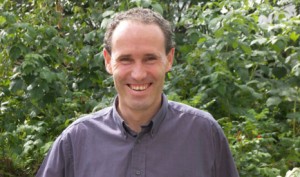 Richard received the award for having made a substantial impact in collaborative working within BU, and securing external funding to create an innovative research network involving internal colleagues and external institutions. The research undertaken by the network has led to high impact outputs.
Richard received the award for having made a substantial impact in collaborative working within BU, and securing external funding to create an innovative research network involving internal colleagues and external institutions. The research undertaken by the network has led to high impact outputs.
Congratulations Richard! 😀
Administrative Costs for Managing FP7 Grants
LERU presents the views of some of Europe’s leading research-intensive universities as a contribution to the ongoing debate on the simplification of the Framework Programme in this document.
Vice-Chancellor’s Awards – research project winners!
The Vice-Chancellor’s Awards took place last night and the winner’s of the two research awards were:
Collaborative research / enterprise project of the year: Dr Richard Shipway from the School of Tourism
Research / enterprise project of the year: Design Simulation Research Centre led by Professor Siamak Noroozi from the School of Design, Engineering & Computing
Congratulations to all staff involved! 😀
We will be featuring both of the award winners in future blog posts!
Dave Parham and Paola Palma – Swash Channel wreck
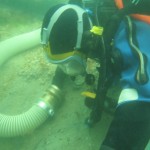 Dave Parham and Paola Palma (School of Applied Sciences) have been researching the Swash Channel Wreck which lies in approximately 7m of water in the Swash Channel in the approaches to Poole Harbour. The site was discovered as a side-scan sonar anomaly as a result of a geophysical survey conducted by Wessex Archaeology on behalf of Poole Harbour Commissioners and Poole Borough Council. The site has since been designated as a Historic Wreck.
Dave Parham and Paola Palma (School of Applied Sciences) have been researching the Swash Channel Wreck which lies in approximately 7m of water in the Swash Channel in the approaches to Poole Harbour. The site was discovered as a side-scan sonar anomaly as a result of a geophysical survey conducted by Wessex Archaeology on behalf of Poole Harbour Commissioners and Poole Borough Council. The site has since been designated as a Historic Wreck.
 The ship is the subject of a major excavation by BU, supported by English Heritage. It has been dated to around 1630 and includes the earliest ship carvings ever found in the UK, including a mysterious wooden merman, and much of the evidence found on the wreck suggest that it would have been a relatively high status ship for its period.
The ship is the subject of a major excavation by BU, supported by English Heritage. It has been dated to around 1630 and includes the earliest ship carvings ever found in the UK, including a mysterious wooden merman, and much of the evidence found on the wreck suggest that it would have been a relatively high status ship for its period.
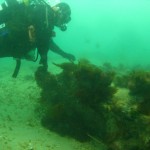 The wreck has been featured on the One Show (6 April 2011) where presenter Dan Snow took part in a dive on the wreck in the mouth of Poole Bay alongside a team of BU Marine Archaeologists, led by Dave.
The wreck has been featured on the One Show (6 April 2011) where presenter Dan Snow took part in a dive on the wreck in the mouth of Poole Bay alongside a team of BU Marine Archaeologists, led by Dave.
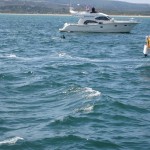 Dave will also feature in the fourth episode of Britain’s Secret Seas, The Bustling South, on 29 May at 8pm on BBC2.
Dave will also feature in the fourth episode of Britain’s Secret Seas, The Bustling South, on 29 May at 8pm on BBC2.
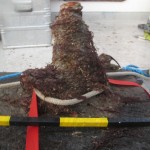 After conservation, finds from the Wreck and all the information from the excavation will be passed on to Poole Museum Service to be displayed to the community.
After conservation, finds from the Wreck and all the information from the excavation will be passed on to Poole Museum Service to be displayed to the community.
Latest EU funding opportunities in media, sport and GKE
Media Funding
Promoting EU Audiovisual Works
Implementation of Media Pilot Projects
Sport Funding
Preparatory Actions in Sport
Green Knowledge Economy Funding
Assessment of EU Climate Policies
Impact of ICT R&D in Large-Scale Deployment of Electric Vehicles
Communication Campaign on Climate Action & Low-Carbon Society
Competitiveness Eco-Innovation initiative
Clean Sky 9th Call
FP7 Fuel Cells & Hydrogen Joint Undertaking Proposals
Green Knowledge Economy Events
Euroscience Open Forum
Eco-Innovation UK Info Day
FP7 Environment Info Day
trouble accessing UKRO? see our former blog post
PGR Poster Events
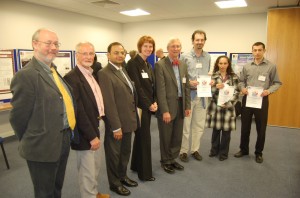
Post Graduate Researcher Poster Events
At School level we will shortly be holding a Post Graduate Poster event on the 18th May. This was an initiative that started five years ago following a suggestion from a PGR student representative. Various poster events are organised specifically for PGR only participation, at national level such as the young engineer of the year competition at the Houses of Parliament, at university level organised by the Graduate School and at academic group level such as the new Psychology event. It is worth thinking about these activities and the value to the academic community at various levels.
Our PGR poster event is organised with the help of a small number of staff but the main decision making regarding the format of the event is driven by the PGR community itself. The posters compete for a small cash prize within year groups and are judged externally by invited high-profile industrialists and academics. Participation level has been high during the four events to date and the event ownership for the participating PGR’s has been maintained. External participation to judge the posters has been appreciated by the PGR’s as the economic and practical benefits of research are seen as valued. In addition, the enthusiasm for the research projects from the external competition panel act as a real motivation to students and supervisors. Our key values that keep the poster conference successful are retaining the PRG ownership concerning format and external engagement via the competition judgment of the posters.
Prof Mark Hadfield
Deputy Dean – Research and Enterprise
School of Design, Engineering and Computing
book your place on the BU GrantCraft Research Workshop Day!
 We are delighted to offer a bespoke GrantCraft Research Workshop Day on May 11th 2011, facilitated by Dr Martin Pickard, a specialist in writing and supporting research proposals (particularly EU). Sessions will be held on grant writing skills, impact and benefit, how to write a Marie Curie proposal and the management of EU projects. You can attend as many sessions as you like throughout the day. To read more on each session and to make a booking see our GrantCraft Research Workshop Day Event Page.
We are delighted to offer a bespoke GrantCraft Research Workshop Day on May 11th 2011, facilitated by Dr Martin Pickard, a specialist in writing and supporting research proposals (particularly EU). Sessions will be held on grant writing skills, impact and benefit, how to write a Marie Curie proposal and the management of EU projects. You can attend as many sessions as you like throughout the day. To read more on each session and to make a booking see our GrantCraft Research Workshop Day Event Page.
Researchers of the next generation
Prof Holger Schutkowski, Deputy Dean in the School of Applied Sciences, joined BU in January. Here he provides his thoughts on training the next generation of researchers.
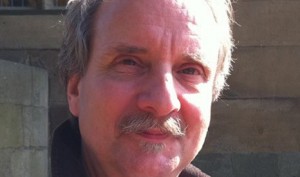 In a week’s time I will have the great pleasure to open the School of Applied Sciences’ Postgraduate Research Conference. I was delighted that I was asked to give a keynote, not only because it is a nice way of making myself known to students, since I only arrived at BU in January, but also to share some thoughts about the way we do research. Whilst universities require some original research in the final year undergraduate dissertation, and to a much greater extent in Master’s programmes, it is at PhD level where we expect the clear evidence of intellectual independence, of playful recombination of knowledge, which will allow candidates to go beyond current established borders of thought, and to push scientific progress, something that is always happening at the fringes.
In a week’s time I will have the great pleasure to open the School of Applied Sciences’ Postgraduate Research Conference. I was delighted that I was asked to give a keynote, not only because it is a nice way of making myself known to students, since I only arrived at BU in January, but also to share some thoughts about the way we do research. Whilst universities require some original research in the final year undergraduate dissertation, and to a much greater extent in Master’s programmes, it is at PhD level where we expect the clear evidence of intellectual independence, of playful recombination of knowledge, which will allow candidates to go beyond current established borders of thought, and to push scientific progress, something that is always happening at the fringes.
Are we able to give advice? Should we? How can we make this happen? The latest deliberations about the future of current PhD systems and their ever-increasing production of graduates is beginning to raise serious concerns and to elicit calls for reforms, quite drastically, indeed (http://www.nature.com/news/2011/110420/full/472261a.html). Interestingly enough, they emphasise co-operation between institutions (consortia) and cross-disciplinary work.
While the former is already part of the RCUK agenda and is likely to shape the future of PhD funding and recruitment in the UK over the next years, the latter maybe can do with further encouragement. Certainly, one way is to encourage our PhD students to decidedly undertake an interdisciplinary project, which essentially means to embrace the boldness of crossing borders, to work across disciplines and to become acquainted with, adopt and modify interpretive frameworks of other, related or cognate subject areas. Often claimed, rarely done, though; unfortunately a recurring problem and certainly not confined to the fledgling researcher. Another approach is to ensure the research is firmly embedded into a wider and meaningful context, so that these connections across disciplinary borders can be made and the outcomes of the research become accessible and meaningful to the related or cognate subject areas we are trying to include in the first place.
As it happens, this is what I am going to talk about in my presentation, with case studies that necessitate contextualised analysis to demonstrate how we can bring past societies to life through the study of their skeletal remains. But to come back to the state of PhD systems: cross-disciplinary thinking and context awareness is what we want to instil in the researchers of the next generation. But this also requires the intellectual capacity and preparedness for doing so. The students we graduate need to be skilled and prepared for an increasingly competitive job market.
Prof Holger Schutkowski
Deputy Dean
School of Applied Sciences
This week’s large funding pots
 New £550m Green Equipment Funding Scheme Launched by Carbon Trust
New £550m Green Equipment Funding Scheme Launched by Carbon Trust
Worth up to £550 million over the next three years, the dedicated low carbon finance scheme is the first of its kind and will enable UK organisations to invest in cost effective energy efficiency equipment and other low carbon technologies, such as new efficient lighting and biomass heating.
Comic Relief International Grants Programme
Applications can be for up to £1 million and thedeadline for applications is 01.09.11
Bupa Foundation Awards
Now open to entries from clinicians, researchers and health care professionals, recognising excellence. £60,000 will be allocated for completed research and/or development that has been conducted over the past three years. Deadline is 01.07.11
Heritage Grants over £1 Million
The next closing date for applications under the Heritage Lottery Fund’s Heritage Grants Scheme for projects over £1million and under £5million is the 19.06.11
EDF Energy’s Green Fund
The Fund offers grants of up to £30,000 to help cover the cost of renewable energy technology that can be used to produce green energy from renewable sources. The deadline is 31.08.11
Research & Enterprise Bids
I am pleased to report that there has been a rush of research/enterprise bids over the last couple of weeks and a few notable successes. Rudy Gozlan in Applied Sciences and colleagues have submitted a large Erasmus Mundus scheme for over £300k which is great news given BU’s push to increase its European activity. The bid Proving our Value to the SW Forum from Sarah Hean (HSC), Gordon Liu (BS) and Vurain Tabvuma (BS) is also a great example of collaborative working which is fantastic to see. Heather Hartwell, Edwin van Teijlingen, Ann Hemingway, Joanne Mayoh, Ian Jones and Roger Vaughan have collaborated on a bid around male wellbeing to the NIHR Public Health Research; another example of cross BU working. Sarah Cheesman, Gail Thomas, Clive Andrewes, Clive Matthews have put in a bid to the SW SHA for non-prescribed medical training. Jian Zhang has joined a collaborative bid to the AHRC Knowledge Exchange Hub and John Ellis has applied for support from the CIMA Relevance Regained Scheme. All of this activity is fantastic especially the cross BU and EU bids, so good luck to all with your bids!
If we turn to the successful awards there is a host of things from Jon Wardle and CEMP and successful bids in Applied Sciences from Harry Manley and Tim Darvill the latter from the AHRC is particularly notable. Steve Calver, Lisa Stuchberry and Philip Alford have all been successful with bids to Dorset County Council for various projects. The other bid news is the success on the part of Kate Welham, Neil White and Hugh Chignell in receiving support from the AHRC for a block grant to support PhD students over the next three years; this is an outstanding achievement. So congratulations to all concerned on these successful bids!
Matthew Bennett
PVC (Research, Enterprise & Internationalisation)
Using Skype to collaborate!
 Skype is a VoIP (voice over IP) application to enables users to collaborate via a computer interface by calling one another. To use Skype you need to download an install a client application which enables your PC to work as a telephone. You can then make free calls to other Skype users on the network via your PC, regardless of location.
Skype is a VoIP (voice over IP) application to enables users to collaborate via a computer interface by calling one another. To use Skype you need to download an install a client application which enables your PC to work as a telephone. You can then make free calls to other Skype users on the network via your PC, regardless of location.
The benefits for collaboration via Skype rather than conventional telephone calls are:
- longer and more frequent interactions
- free phone calls to other Skype users via computers
- you can record and archive conversations and interview notes
- you can engage in multiuser conversations
- you can make podcasts to share research with others
For information on using Skype check out the Skype website.
If you have used Skype before, comment on this post to let others know about your experiences!
EPSRC grant success for Dr Janet Dickinson (ST)
 Dr Janet Dickinson, based in the School of Tourism, has been awarded £127k from the EPSRC for leading a BU work package as part of the larger collaborative research project 6th Sense Transport (6ST), led by Dr Tom Cherrett (University of Southampton).
Dr Janet Dickinson, based in the School of Tourism, has been awarded £127k from the EPSRC for leading a BU work package as part of the larger collaborative research project 6th Sense Transport (6ST), led by Dr Tom Cherrett (University of Southampton).
6ST aims to revolutionise the process of decision making in travel behaviour (whether it be for the movement of people or things) by using social networking principles to create ‘visibility’ of potential transport options in time and space. If we are better able to visualise the activity of people and things (cars, buses, lorries, even items within a lorry) relative to their immediate and future time schedules, and crucially, the conditions under which people and other ‘things’ might be willing to liaise and adapt, we might be able to realise more opportunistic and collaborative uses for transport resources, leading to a reduction in overall transport related carbon emissions.  6ST will provide a deep understanding of how the increasingly multiple forms of temporality and spatiality influence travel mode choices and the ways in which people and ‘things’ might be willing to share certain personal travel information. This will be achieved through the novel use of smart phone and tagging technology to provide data feeds on activity and availability, monitored through a Platform that will anticipate opportunities for connections that are then made visible to users in the social network. The contribution from Bournemouth University focuses on reducing car dependence at UK tourism destinations. A series of experiments at campsites will explore to what extent the tagging of vehicles linked to dynamic data repositories of tourists daily experiences, needs and desires can break down social barriers and facilitate more cooperation. This enhanced temporal and spatial visibility could lead to better use of public transport, lift sharing to and from attractions, and the co-ordinated movement of ‘things’ (in terms of provisions) required by the collective members of the campsite.
6ST will provide a deep understanding of how the increasingly multiple forms of temporality and spatiality influence travel mode choices and the ways in which people and ‘things’ might be willing to share certain personal travel information. This will be achieved through the novel use of smart phone and tagging technology to provide data feeds on activity and availability, monitored through a Platform that will anticipate opportunities for connections that are then made visible to users in the social network. The contribution from Bournemouth University focuses on reducing car dependence at UK tourism destinations. A series of experiments at campsites will explore to what extent the tagging of vehicles linked to dynamic data repositories of tourists daily experiences, needs and desires can break down social barriers and facilitate more cooperation. This enhanced temporal and spatial visibility could lead to better use of public transport, lift sharing to and from attractions, and the co-ordinated movement of ‘things’ (in terms of provisions) required by the collective members of the campsite.
 6ST seeks to reduce energy consumption and emissions from the transport sector through an increase in adoption of sustainable travel modes and lower carbon travel choices.
6ST seeks to reduce energy consumption and emissions from the transport sector through an increase in adoption of sustainable travel modes and lower carbon travel choices.
User-groups associated with three experimental areas (urban logistics; primary education and tourism) will immediately benefit. In tourism the main beneficiaries are tourists (the end users), but also local transport providers, visitor attractions, local tourism associations and ultimately local residents. The key benefit will be the ability to positively alter transport behaviours (reducing CO2, enhancing quality of life and reducing travel costs). Beyond the timescale of the project (2.5 years), as a growing mass of users participate, there is potential to expand the scale of the impact into other domains (e.g. work, retail travel).
The project is due to start in August 2011 and has a total award value of £730k.
 Dr Janet Dickinson will be leading the research at BU together with four partners (University of Southampton, University of Lancaster, Edinburgh College of Art and the University of Salford). Janet’s research is currently focused on the role of time in the consumption of tourist travel and the ‘slow travel’ concept.
Dr Janet Dickinson will be leading the research at BU together with four partners (University of Southampton, University of Lancaster, Edinburgh College of Art and the University of Salford). Janet’s research is currently focused on the role of time in the consumption of tourist travel and the ‘slow travel’ concept.
REF event 19 & 20 May 2011 – REGISTRATION IS OPEN!!
 BU is hosting a two-day REF event on Thursday 19 and Friday 20 May 2011. All staff are invited to attend.
BU is hosting a two-day REF event on Thursday 19 and Friday 20 May 2011. All staff are invited to attend.
The event is of interest to BU academic staff and anyone who will be involved in the BU submission to the REF.
There will be three separate sessions:
Session 1
Thursday 19 May 9am-2pm
This session will be open to BU staff and external delegates.
There will be presentations from the REF team at HEFCE, REF impact pilot panel members, and a REF impact pilot institution (University of Plymouth).
Session 2
Thursday 19 May 2pm-5pm
This session is only open to BU staff.
This session will provide BU staff with the opportunity for internal networking, followed by a demonstration of BU’s new publications management system and a presentation on preparing a publication profile for the REF.

Session 3
Friday 20 May 9:45am-4:30pm
This session is only open to BU staff.
The focus of this session is the development of the BU impact case studies. There will be presentations of the impact case studies being developed at the moment.
All sessions will take place in Kimmeridge House and Poole House, Talbot Campus.
You must register separately for each session you will be attending.
See our previous REF Event blog post for further details. The provisional programmes are available on the registration forms (see links above).
AHRC Block Grant – awarded!
 I am delighted to tell you that BU has been awarded the AHRC Block Grant Partnership: Capacity Building Scheme grant that we applied for early this year. The final numbers are given below:
I am delighted to tell you that BU has been awarded the AHRC Block Grant Partnership: Capacity Building Scheme grant that we applied for early this year. The final numbers are given below:
Archaeology – 2x PhD studentships (one for 2012 and one for 2013)
Film, Digital and Media Production – 1x PhD studentships (one for 2011) and 4 professional Preparation Masters (2 in 2011, 1 in 2012 and 2013)
History – 1x PhD studentships (one for 2011)
This is a fantastic achievement and many congratulations are due to everyone. This was a collaborative venture between Applied Science and the Media School led by Kate Welham, but thanks are also due to the whole team: Neil White, Fiona Knight, John Fletcher and Hugh Chignell. Not only is this a great illustration of the power of cross School collaboration but significantly allows us to apply for further block grants down the line. Fantastic stuff!!!!!
Matthew Bennett
PVC (Research, Enterprise & Internationalisation)
Learning from someone who is learning themselves
It’s early the day after Easter Monday and I am sitting in the office looking out at the view as the haze clears and another fresh spring day dawns. Yes all very poetic! I have in fact spent much of the weekend looking at the view while spending the mornings working hard on a conference paper for later this week – I am a keynote speaker at a primatology conference this week. I also have a big project meeting attached to the conference since I am now one year into my current NERC project and it’s about time that we started to have something to show for it! I have been running this really cool computer code in MATLAB to generate some new data which was written by some colleagues in Liverpool. It takes an individual footprint – in this case some from Namibia – and translates, transforms and superimposes it on others to create a mean footprint. So for example if you have a trail of ten prints then instead of trying to interpret all ten individually you can focus on the mean. It is a great way forward since intra-trail variability is a key problem in making inferences from ancient footprint trails. Took me a while to master MATLAB – well master is a bit of an overstatement, at least get it to work! But once I got it working I could set the code running to process data in batches, time consuming but the results are great. This whole process has set me thinking about the fact that doing research is really about life long learning – learning new stuff whether it be concepts, software or skills – and that is what is fantastic about being an academic and makes the profession one that I feel privileged to be part. Sharing this with students and giving them the skills and enthusiasms for a life time of learning is also one which is cool. A week Wednesday is the BU Education Enhancement Conference; I am down to talk about research informed education something which I feel very strongly about. I have to write the talk yet, but for me the key is the fundamental idea of ‘learning from someone who is learning themselves’. I really like this concept and when people ask what research has to do with a good student experience I think the answer is summed up by this phrase and in the simple idea of passing on ones own wonder at new knowledge and learning!













 BU attendance at third annual GCPHR meeting in June
BU attendance at third annual GCPHR meeting in June Interactive Tangible and Intangible Heritage Applications – BU student work featured in new book chapter
Interactive Tangible and Intangible Heritage Applications – BU student work featured in new book chapter Second NIHR MIHERC meeting in Bournemouth this week
Second NIHR MIHERC meeting in Bournemouth this week MSCA Postdoctoral Fellowships 2025 Call
MSCA Postdoctoral Fellowships 2025 Call ERC Advanced Grant 2025 Webinar
ERC Advanced Grant 2025 Webinar Horizon Europe Work Programme 2025 Published
Horizon Europe Work Programme 2025 Published Horizon Europe 2025 Work Programme pre-Published
Horizon Europe 2025 Work Programme pre-Published Update on UKRO services
Update on UKRO services European research project exploring use of ‘virtual twins’ to better manage metabolic associated fatty liver disease
European research project exploring use of ‘virtual twins’ to better manage metabolic associated fatty liver disease